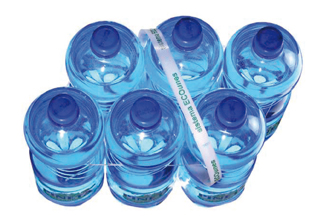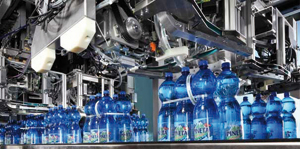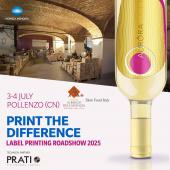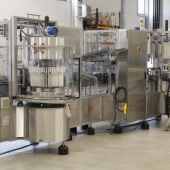LitePac and EvoLite
Lightweight, economical, sustainable: a "bundle" of benefits from Krones.
Krones places the onus on the strapping system LitePac made with the machine EvoLite, presenting it as the first and only "real" transport packaging innovation over the last 30 years. Its originality and effectiveness have been highlighted by an award (the Logistics packaging Oscar), but aboveall by the market approval the system is enjoying. Food for thought from the replies given by Franco Tomba, CEO of Krones Italy.
Krones’s LitePac secondary packaging system offers a viable and sustainable alternative to existing solutions on the market. What are its strengths and why did it attract the attention of the Packaging Oscar jury?
In general, the experts appreciate the originality and the reduced environmental and energy impact of the system, but they have not failed to stress its importance in reducing the cost of the raw materials used. Its real strongpoint for me is LitePac’s capability to get the end consumer to think differently. In fact, today we are proposing a less invasive type of packaging but which has in practice proven itself to be reliable, safe and convenient. Which in many ways contrasts with the widely held perception that associates minor packaging "consistency" with poor product quality. Indeed we are convinced that in the packaging world we must all do our bit to contribute to reduction in the broadest sense (reducing materials, energy costs), an approach which is the very keystone of a sustainable development model. A lean solution like that offered by LitePac bundle can easily replace shrink film packaging or solutions combining film and tray or cardboard box, whether the containers are made of glass, PET or other materials.

How has the market reacted? In other words, beverage producers expressed a keen interest in the EvoLite + LitePac system when it was proposed at the international showcase Interpack 2011. Has this interest led to the start of anything concrete?
From the first presentations at Interpack, the LitePac system achieved thanks to Evolite machine technology has aroused the interest of industry operators plus water and beverage producers who aboveall appreciated the technological efficiency of the machine associated with its ability to save resources, its simplified system layout and the small size of the machine. But the real exploit was only achieved when the end consumers started to realise the advantages offered by this uncommon mode of packaging: it’s being easy to transport, not bulky and leaving little material to be disposed of... The consequences of this approval? Today it is the large retailers who are pushing the beverage manufacturers to fit themselves out with our system, which also enables the reduction of storage surface taken up both in the warehouse and in supermarkets, as well as rationalising pallet traffic. Currently we have sold two machines in Italy, but have at least another five other "hot projects" in the offing...
Hence in Italy too there has been a good reaction ... Might this confirm the propensity to invest in a technology which, at least for the moment, still seems to be rather expensive?
The Italian response is not only excellent in numerical terms, but different and advanced in terms of quality, because it goes beyond the price barrier. True to say, the technology requires a hefty initial outlay, but the saving on materials and energy consumption leads to a return on investment within 18 months. To support our customers, Krones also offers financial solutions specifically designed for every need, financial leasing, rental, or "pay per bottle" systems that is.
In this regard, can you give us a clearer indication of the economic returns?
A reminder that on this count, compared to a conventional heatbundling operation, with LitePac the energy required is reduced by 90% and the costs of the secondary packaging for the PET containers decreased by 75%. The results are considerable: in practice you can get an average savings of between 5 and 5.5 euros per 1,000 bottles produced.
Generally speaking Krones’s offer suits the needs of beverage and bottling: is it realistic to think about possible applications of the system in other areas, where multipack packaging is widespread?
We are studying the possible developments and the prospect of extending this technology to the "non food" segments.



















